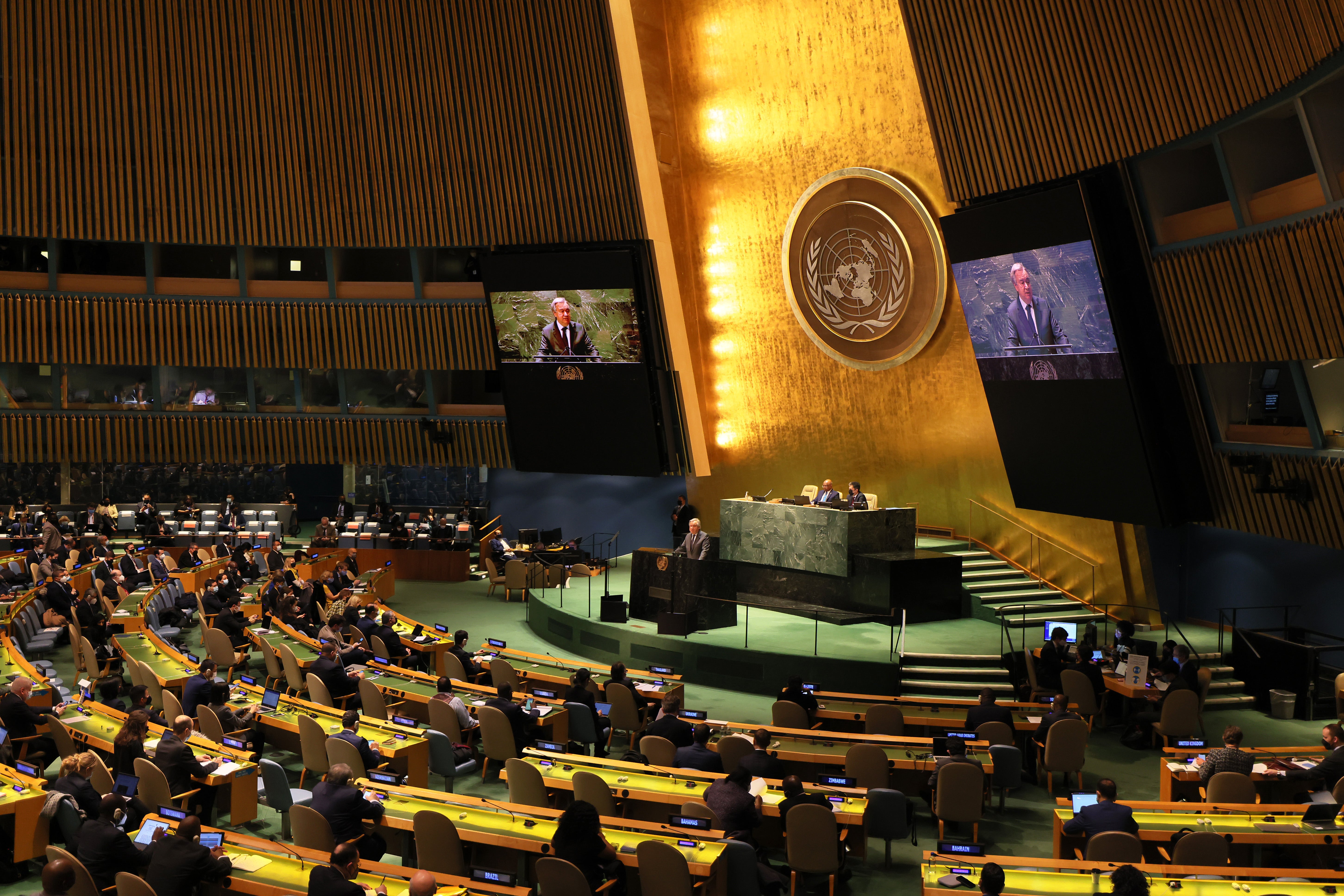America beats Russia in United Nations election that determines the future of the internet
Doreen Bogdan-Martin will head the International Telecommunication Union for the next four years

The United States’ candidate Doreen Bogdan-Martin has beaten Russia’s Rashid Ismailov in an election to head the International Telecommunication Union, which oversees internet and communication standards.
The election was seen as a ideological race between a continuation of an internet led by the US , or a “humanization” of the infrastructure against American “dominance” online, as Mr Ismailov described it.
“The world is facing significant challenges – escalating conflicts, a climate crisis, food security, gender inequalities, and 2.7 billion people with no access to the internet,” said Ms Bogdan-Martin after winning. “I believe we, the ITU and our members, have an opportunity to make a transformational contribution.”
The ITU, which predates the United Nations by approximately 80 years, has the power to set key guidelines for how video streaming works and coordinates the global usage of the radio frequencies for phone networks.
Its members include 190 nation-states, who vote in elections, as well as 900 corporations, research bodies, and NGOs who are present but do not enjoy voting rights.
The schism between the two candidates, however, represents a split between the global internet dominated by American giants such as Apple, Microsoft, Facebook, and Google and nominally uncontrolled by the government, and a ‘splinternet’ that would see extremely different regulation based on the country a user was in - such as China’s Great Firewall, or Russia’s attempts to cut itself off from the wider web.
“The internet, at its lowest level, should be data-agnostic,” Mallory Knodel, chief technology officer at the Center for Democracy & Technology, told Wired. There is “less information control if the data is agnostic,” she says.
Ms Knodel later told The Independent that Ms Bogdan-Martin “is a crucial ally to civil society’s goals to expand meaningful connectivity around the world to enable fundamental human rights. While the internet is governed by a constellation of standards bodies and policy fora, her legacy in the development sector of the ITU shows she will be an inspirational and cooperative leader. “
Both Russia and China put out a joint statement in 2021 calling to preserve “the sovereign right of states to regulate the national segment of the internet”, adding that they would “enhance the role of the International Telecommunication Union and strengthen the representation of the two countries in its governing bodies.”
While the race for secretary-general has been decided, a meeting later this month will see ITU members elect new regulatory boards and choose a new council - moves which could determine the ITU’s philosophy over the next four years, before a new secretary-general is elected..
Göran Marby, chief executive of ICANN—the Internet Corporation for Assigned Names and Numbers which allocates IP addresses— said that if Russia’s candidate had won “people around the world might not be able to connect to one single interoperable internet”, and the notion that the internet will continue to be balkanised is still a possibility.
More follows...



Join our commenting forum
Join thought-provoking conversations, follow other Independent readers and see their replies
Comments